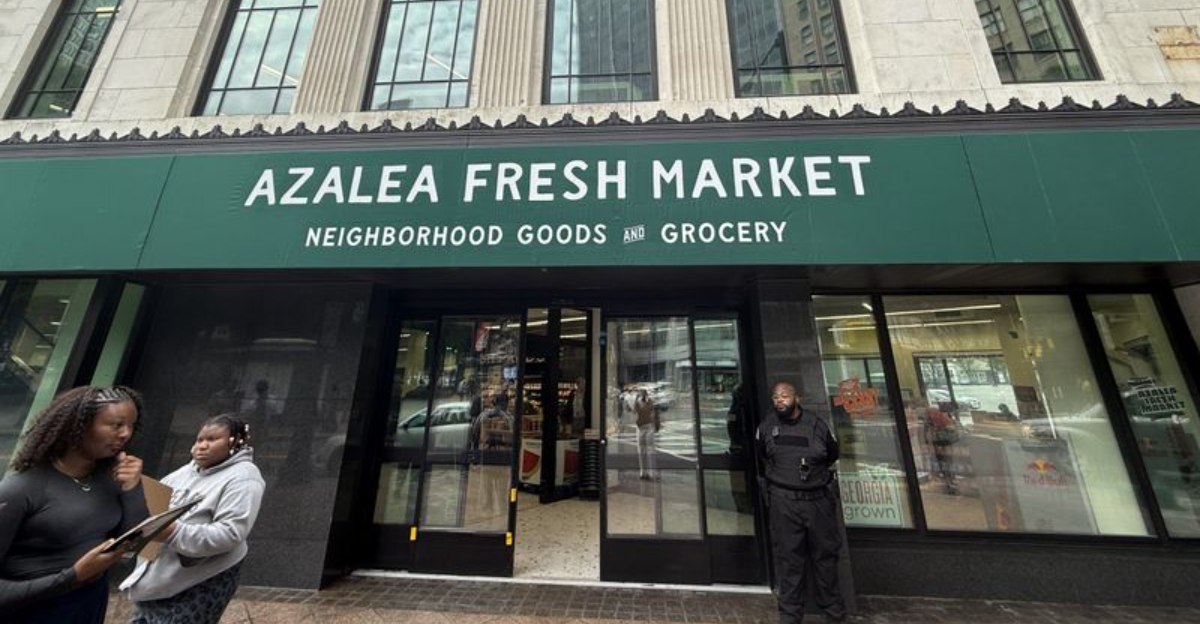
Have you heard about Atlanta’s latest effort to tackle food deserts? I recently visited the Azalea Fresh Market, a groundbreaking new grocery store designed specifically to combat hunger in underserved neighborhoods. This innovative market isn’t just selling food – it’s transforming how communities access healthy options and creating a blueprint for cities nationwide. Let me walk you through what makes this place so special and why it might just change the game for food security in urban America.
1. Neighborhood Oasis Where Food Deserts Once Reigned
Wandering through Azalea Fresh Market’s colorful produce section, I couldn’t help but remember that just months ago, residents here had to travel miles just to buy fresh vegetables. The store sits proudly in what was once a notorious food desert, where convenience stores and fast food were the only nearby options.
Though the building looks modest from outside, inside it’s a bustling hub of activity and community pride. Families examine locally grown tomatoes while elderly neighbors chat by the dairy section.
If you’re wondering about prices, that’s another revolutionary aspect – everything is affordable by design, with sliding scale options for those who need it most. The market even accepts SNAP benefits and offers additional discounts for seniors and students.
2. Community-Focused Grocery With a Local Mission
Azalea Fresh Market stands out by putting community needs at the heart of its mission. While it operates through a public-private partnership, its design reflects local priorities – bringing fresh, affordable food to a long-underserved part of Atlanta.
The market offers pricing that is competitive with major grocery chains and accepts SNAP benefits, ensuring accessibility for low-income families, students, and seniors. It also supports local hiring, helping create jobs within the surrounding neighborhoods.
Though not a nonprofit or governed by residents, the store aims to serve more than just customers – it aims to be part of the community’s economic growth. Educational programs and nutrition outreach may be added in the future, but for now, its biggest impact is providing reliable, healthy food options where they were once hard to find.
3. Supporting Georgia’s Local Food Economy
Azalea Fresh Market is also helping strengthen Georgia’s local food system by prioritizing regional suppliers. While specific farm partnerships have not been publicly detailed, the store has expressed interest in sourcing produce and goods from local growers whenever possible.
This approach not only supports small-scale agriculture, but it also keeps more dollars circulating within the local economy. Buying locally helps reduce transportation costs and encourages the availability of fresher ingredients.
Though stories of backyard farmers contributing regularly to the store are anecdotal, the idea aligns with Atlanta’s broader sustainability goals. If fully implemented, such partnerships could offer new opportunities for urban farms and small producers to thrive while ensuring customers have access to seasonal, nutrient-rich foods grown nearby.
4. Waste Reduction Goals with Room to Grow
Azalea Fresh Market is focused on sustainability, although there’s no confirmed use of advanced tech systems for food waste reduction. While some reports mention the potential for programs that reduce spoilage and donate unsold goods, specifics like smart inventory tracking, digital displays, and prepared meals from aging produce have not been confirmed.
That said, food waste is a key issue for grocery retailers everywhere, and Azalea’s community-driven approach may eventually include innovations like these. Local organizations and food pantries in Atlanta already collaborate with grocers to rescue edible food, and this store could join that effort.
For now, the store’s primary strength lies in accessibility, but its long-term success may also depend on how effectively it can manage surplus and sustainability goals.
5. A Model Other Cities Are Watching
Since its opening, Azalea Fresh Market has drawn interest from leaders in other cities facing similar food access challenges. Officials from areas like Philadelphia and Detroit have reportedly taken note of Atlanta’s efforts, seeing the store as a potential model for how municipalities can support grocery access in food deserts.
While there’s no official open-source guide or federal policy directly citing the “Azalea Model,” its early success suggests it could influence future community food programs. If the store proves sustainable – financially and socially – it may help shift how local governments approach food insecurity.
Tracking data on shopping habits, job creation, and health outcomes will be key in demonstrating its long-term impact. For now, Azalea is a promising first step with national potential.
Dear Reader: This page may contain affiliate links which may earn a commission if you click through and make a purchase. Our independent journalism is not influenced by any advertiser or commercial initiative unless it is clearly marked as sponsored content. As travel products change, please be sure to reconfirm all details and stay up to date with current events to ensure a safe and successful trip.